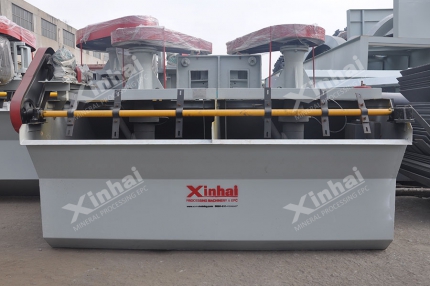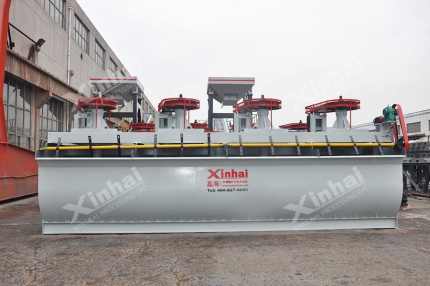As a strategic resource, fluorite ore has a very wide range of uses. It can be widely used in industrial fields such as metallurgy, glass, ceramics, aerospace, medicine, machinery and atomic energy. Therefore, fluorite has also become an important non-metallic mineral in the modern industrial sector. With the large-scale development of the fluoride industry, the demand for fluorspar resources is increasing. The significance of protecting and efficiently utilizing precious fluorspar resources will increase day by day, and the easy-to-find outcrop mines, shallow mines and known mines are becoming more and more important. Reducing, the difficulty of ore prospecting continues to increase, so it is necessary to select a suitable mineral processing technology and continuously improve the mineral processing efficiency of fluorspar ore. When selecting a fluorite beneficiation processing method, factors such as ore type, ore composition, and grade should be considered, and then an economically reasonable and technically feasible process method should be selected. At present, the beneficiation methods of fluorspar mines in my country include hand separation, gravity beneficiation and flotation beneficiation, among which flotation method is the most widely used.
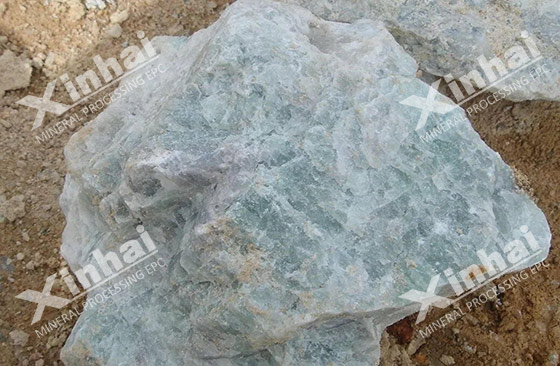
Use the table of contents below to navigate through the guide:
01What are the commonly used fluorite ore beneficiation methods?
Hand selection: simple manual washing, sorting or mechanical grading. It is the simplest and most economical mineral processing method. It requires clear boundaries between fluorite and gangue, easy removal of waste rock, and easy identification of each grade with the naked eye.
Gravity separation: Gravity separation has the advantages of simple structure, convenient operation, and remarkable efficiency. It is mainly used to separate particle ores with higher grade ores, so it is widely used in mines with large amounts of particle ore and high grade.
Flotation: Flotation is a technology widely used in fluorspar mines at home and abroad. High-quality fluorspar concentrate can be obtained through flotation. The flotation method can process different types of fluorspar ores, such as single fluorspar ores and associated fluorspar ores, fluorspar ores with simple and complex structures, coarse-grained fluorspar ores and finer-grained fluorspar ores.
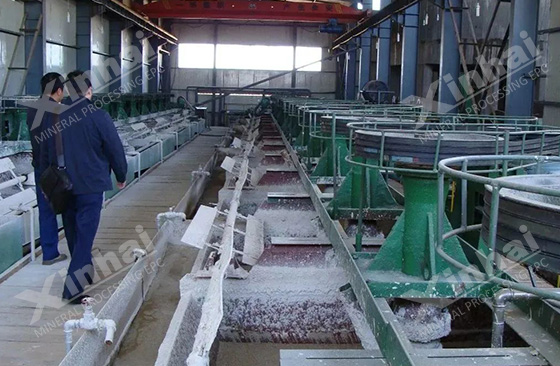
In the actual beneficiation of fluorspar ore, there is a lack of reasonable and full utilization of low-grade fluorspar and flotation tailings, and this part of the ore resources should not be ignored and wasted.
02Overview of fluorite ore flotation process
Flotation is the only method for producing fluorspar concentrate at home and abroad. Flotation mainly refers to foam flotation, which is a process of mineral separation based on the differences in physical and chemical properties of the surface of mineral particles with the help of the buoyancy of bubbles in the slurry. What is usually called flotation refers to positive flotation, that is, useful minerals are floated into the foam product, gangue minerals are left in the slurry, and useless mineral gangue ore surfaces are discharged as tailings in the slurry. The fluorite ore flotation process is: raw ore grinding, classification, pulping, roughing, selection and scavenging. The process consisting of grinding and flotation includes a stage grinding and flotation process, a stage grinding and flotation process, and a concentrate or medium ore regrinding and reselection process. When the number of selections is increased during the flotation process, the inhibitory effect of non-fluorite minerals can be strengthened and the taste of fluorspar concentrate can be improved.
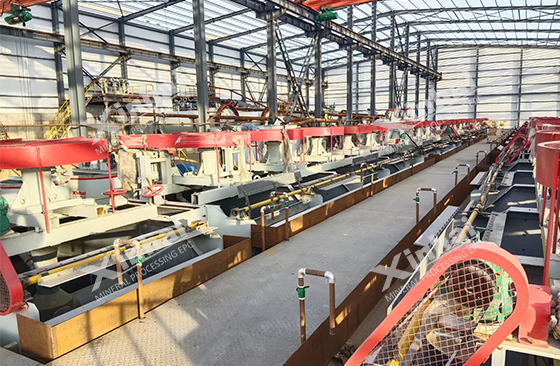
During flotation, the recovery rate of overly coarse ore particles with a particle size greater than 0.1mm and extremely fine ore particles with a particle size less than 0.006mm is low. During coarse particle flotation, the weight of the ore particles is larger and the shedding force increases. During the flotation of extremely fine-grained ores, due to their small mass, they tend to adhere to the surface of coarse particles, reducing the flotability of coarse particles and causing the selectivity of the ores to deteriorate. The specific surface area of extremely fine-grained slime is large, and the mineral particles will absorb a large amount of flotation chemicals, thereby reducing the concentration of chemicals in the slurry, affecting the normal flotation process, and reducing the mineral processing index. The very fine surface area of the slime will increase the surface activity, so this type of slime is easy to interact with various chemicals, which is not conducive to ore flotation.
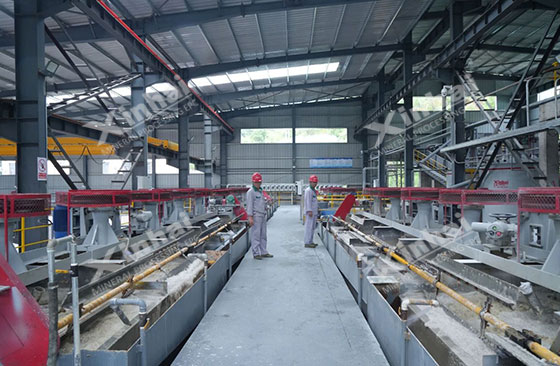
The above content is an introduction to the commonly used beneficiation methods and flotation technology of fluorite ore. The specific fluorspar ore beneficiation method should be selected based on the characteristics of the ore itself. A reasonable and efficient fluorite ore beneficiation process will improve the utilization efficiency and recovery rate of ore resources, and the quality of the obtained concentrate will be further improved. Xinhai Mining can provide you with EPC+M+O services, tailor-made fluorite mineral processing technology, a complete set of mineral processing equipment, equipment installation and commissioning, and mine operation and management. Welcome to consult.


 marketing@ytxinhai.com
marketing@ytxinhai.com  0086 13810327080
0086 13810327080 




























































































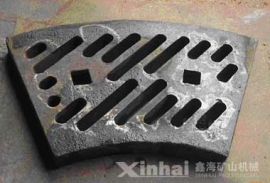









 CHAT
CHAT MESSAGE
MESSAGE



